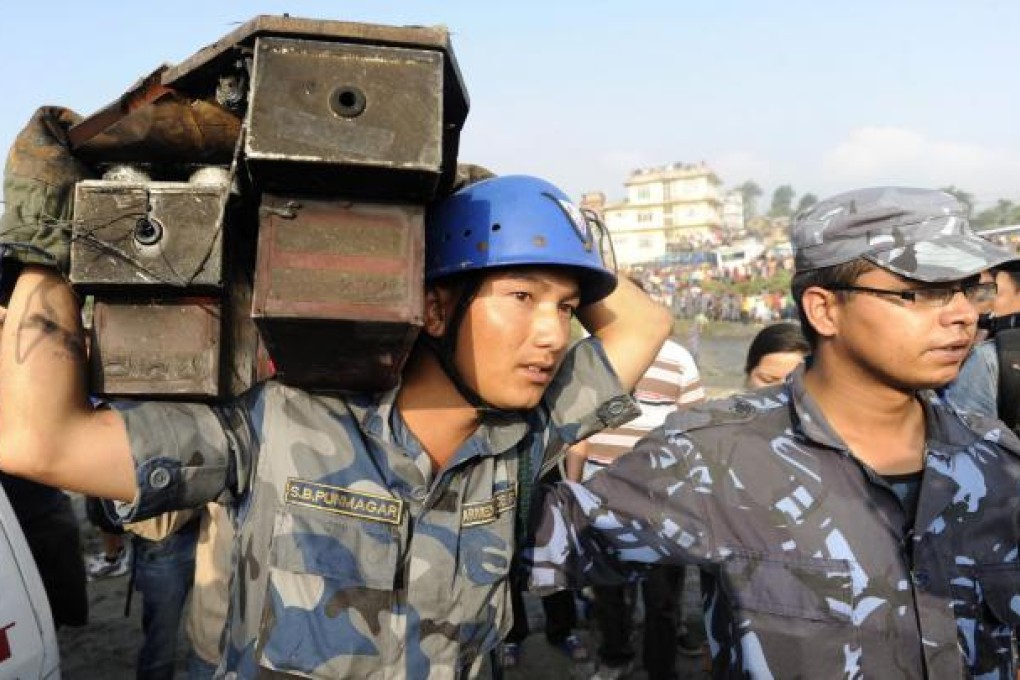Pilot of Nepal crash plane likely panicked, aviation official Suresh Acharya says

Nepal said yesterday an error by a "panic-stricken" pilot was likely to have caused the crash of an Everest-bound plane that killed all 19 on board.
The twin-propeller Sita Air plane had just taken off on Friday from Kathmandu and was headed to the town of Lukla, gateway to Mount Everest, when it plunged into the banks of a river near the city's airport around daybreak.
"The pilot's failure to maintain the required radius is a likely cause of the accident," said aviation ministry official Suresh Acharya, adding the plane turned too sharply because it had not gained enough altitude.
The Dornier aircraft, which crashed minutes after take-off, was headed for Mount Everest, the world's tallest mountain. The victims included British and Chinese Everest-bound trekkers.
The plane's right engine burst into flames after being hit by a bird, causing the aircraft to plummet into the river bank and explode into a huge fireball.
"The preliminary finding of the Civil Aviation Authority notices unusual manoeuvring during the take-off and the pilot communicated to air traffic control the aircraft was hit by a bird," said Acharya.
"But a plane crash does not occur simply just because its engine was hit by a bird," he said, noting incidents when one engine of a twin-engine aircraft has failed and the plane is still able to land safely.